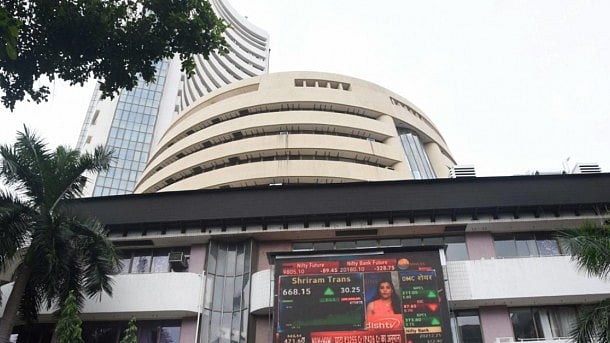
Analysts say that Monday’s record-high trade deficit numbers were also a factor in denting market sentiments on Tuesday.
Credit: PTI photo
Bengaluru: Benchmark indices BSE Sensex and NSE Nifty fell more than 1.3 per cent on Tuesday, on back of widespread sell-off ahead of the interest rate meetings of three central banks - United States Federal Reserve, Bank of England (BoE), and Bank of Japan (BoJ).
The India VIX Volatility Index rose more than 3 per cent on Tuesday after jumping up 10 per cent on Monday, indicating continued uncertainty in the markets. Analysts say that Monday’s record-high trade deficit numbers were also a factor in denting market sentiments on Tuesday.
“Widespread pessimism prevails across all sectors ahead of key policy decisions from the US Fed, BoJ, and BoE. While the market has already factored in a 25 basis points cut from the US Fed, it remains vigilant for any hawkish signals. The BoJ and BoE are largely expected to maintain their current rates for the year,” said Vinod Nair, Head of Research, Geojit Financial Services.
The Fed meeting began on Tuesday and will conclude on December 17. The BoE meeting is on December 19, and the BoJ will meet on December 18-19.
Falling for the second day in a row, the 30-share Sensex dropped 1,064.12 points or 1.30 per cent to settle at 80,684.45. During the day, it fell 1.39 per cent. Investors trading in Sensex companies saw Rs 4.92 lakh crore being wiped out.
The NSE Nifty tumbled 332.25 points or 1.35 per cent to 24,336.
“The decline came amid weak FII (foreign institutional investor) volumes and heightened caution ahead of the US Federal Reserve’s monetary policy meeting, which is expected to provide cues on the trajectory of interest rate cuts going ahead,” said Siddhartha Khemka, Head - Research, Wealth Management at Motilal Oswal Financial Services Ltd.
From the 30-share Sensex pack, all firms ended in the red. Bharti Airtel, IndusInd Bank, JSW Steel, Tata Consultancy Services, Asian Paints, Larsen & Toubro, Reliance Industries and HDFC Bank were the biggest laggards.
The BSE midcap gauge declined by 0.65 per cent and smallcap index slipped by 0.52 per cent.
“The Indian rupee has depreciated to an all-time low, and a record-high trade deficit is exacerbating the pressure. FII outflows persist due to rising US bond yields and a strengthening dollar, further contributing to the prevailing pessimism,”
Geojit’s Nair said.
The Indian rupee ended at a record closing low versus the US dollar at 84.8950, on a widening trade deficit and weakness in local equities. Data released on Monday showed that India’s trade deficit jumped to record high of $37.84 billion in November as festive and marriage-related demand for gold pushed import bills to an all-time peak while outbound shipments declined.